Chinese Love – Part Six Posted by sasha on Nov 28, 2011 in Culture, Uncategorized
After the Three Letters and Six Etiquettes, the bride’s dowry, the installing of the bridal bed, the hair combing, and the groom’s struggle to fetch his own bride, it’s finally time for an actual wedding ceremony. The physical movement to the home of the groom’s family symbolizes the transfer of the bride from her family to that of her soon-to-be husband’s. Upon arriving at the groom’s house, even more fireworks are lit. The bride will be led across a red carpet, and she might have to step over a lit stove – a ritual to bring prosperity and keep evil at bay. Finally, with these rituals finished, the groom could finally lift the red scarf and see his bride. Of course, with so many different cultural groups in China, these customs could differ from one locale to another.
Next up is the actual wedding ceremony (拜堂 – bài táng), the Chinese equivalent to wedding vows in the West, the couple will kowtow three times: to the heaven and earth, to the ancestral tablets, and their parents. Then, they bow to each other. In modern Chinese weddings, it is more common to either simply bow, or to forgo this party of the ceremony entirely.
Then comes the all-important tea ceremony (奉茶 – fèng chá). Usually, the bride and groom will kneel and serve tea to their elders, starting with the groom’s parents. After serving the parents, they will serve the tea in order from the oldest to youngest. For example, the groom’s paternal grandparents (祖父母 – zǔ fù mǔ) would be next, followed by his maternal grandparents (外祖父母 – wài zǔ fù mǔ), then his aunts and uncles, and finally his siblings. In return, the newlyweds receive either red envelopes (红包 – hóng bāo) stuffed with money, or jewelry.
For the main event, a massive wedding banquet (结婚宴席 – jié hūn yàn xí) is held. This is also called “joyful wine” (喜酒 – xǐ jiǔ). A huge feast is served, with upwards of 12 courses, along with plenty of Chinese spirits (白酒 – bái jiǔ). These days, wedding banquets are usually held in a restaurant or hotel. I’m not sure if this is a traditional Chinese wedding custom or not, but in the one wedding I’ve taken part in, the groom went around the room and did a “Cheers!” (干杯 – gān bēi – lit. “dry glass”) with every single person. Needless to say, he was good and drunk by the end of it.
Traditionally, the bride and groom would then be led to the bridal chamber (洞房 – dòng fáng), where the newlyweds will cross arms to drink wedding wine, and then exchange cups to gulp it down. Apparently chugging wine signifies the unity of the couple. The bridal chamber will remain opened on this day, and friends and relatives alike may enter to play tricks on the couple. This tradition is known as “disturbing the bridal chamber” (闹洞房 – nào dòng fáng). In ancient times, the bride and groom often would not meet until the night of the wedding, so these games encouraged family and friends from both sides to get together and have fun, allowing the shy newlyweds to act like husband and wife. Thankfully, for the men out there, modern weddings allow the newlyweds to spend the night in the hotel suite alone.
The day after a traditional wedding, the bride would wake up early to honor her new family’s ancestors, at which time she would be formally introduced to all members of the family. This custom has, for the most part, disappeared from the Chinese weddings of today. Three days after the wedding, the couple will return to the bride’s home (三朝回门 – sān cháo huí mén), where she is greeted as a guest. As with most of the traditional wedding customs, this one has also faded a bit, as modern Chinese couples prefer a honeymoon to some exotic location like the Maldives (马尔代夫 – Mǎ’ěr dài fu). After all of the work that goes into a Chinese wedding, I can’t say I blame them!

Build vocabulary, practice pronunciation, and more with Transparent Language Online. Available anytime, anywhere, on any device.
About the Author: sasha
Sasha is an English teacher, writer, photographer, and videographer from the great state of Michigan. Upon graduating from Michigan State University, he moved to China and spent 5+ years living, working, studying, and traveling there. He also studied Indonesian Language & Culture in Bali for a year. He and his wife run the travel blog Grateful Gypsies, and they're currently trying the digital nomad lifestyle across Latin America.



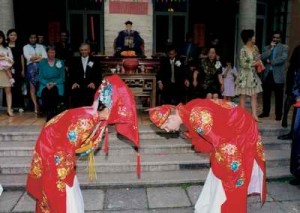
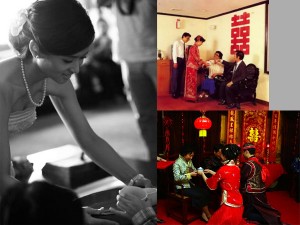
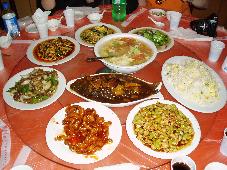
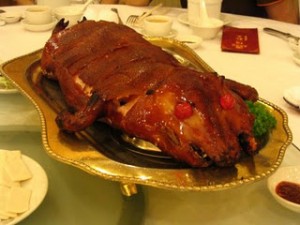
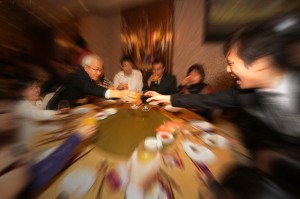

Leave a comment: